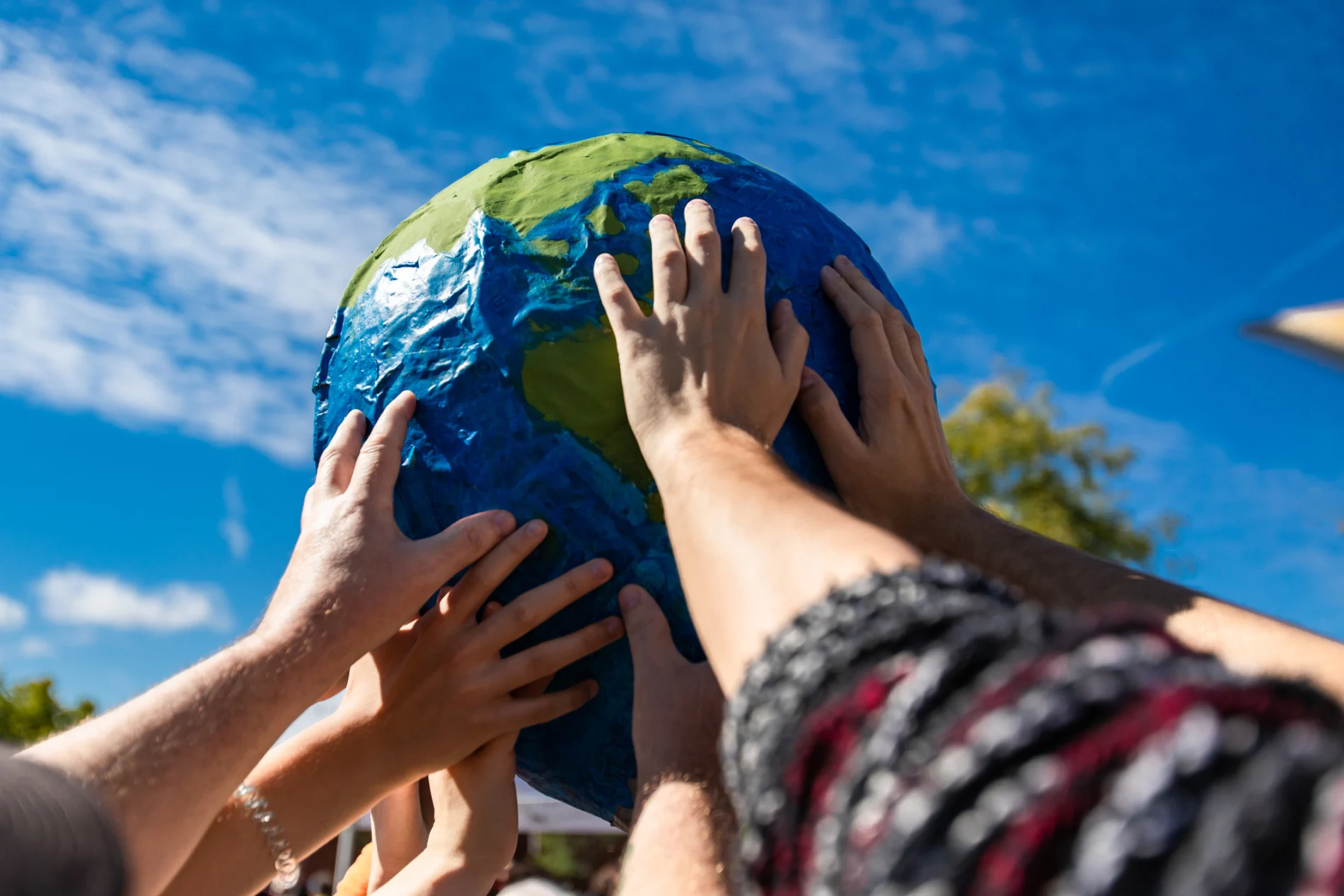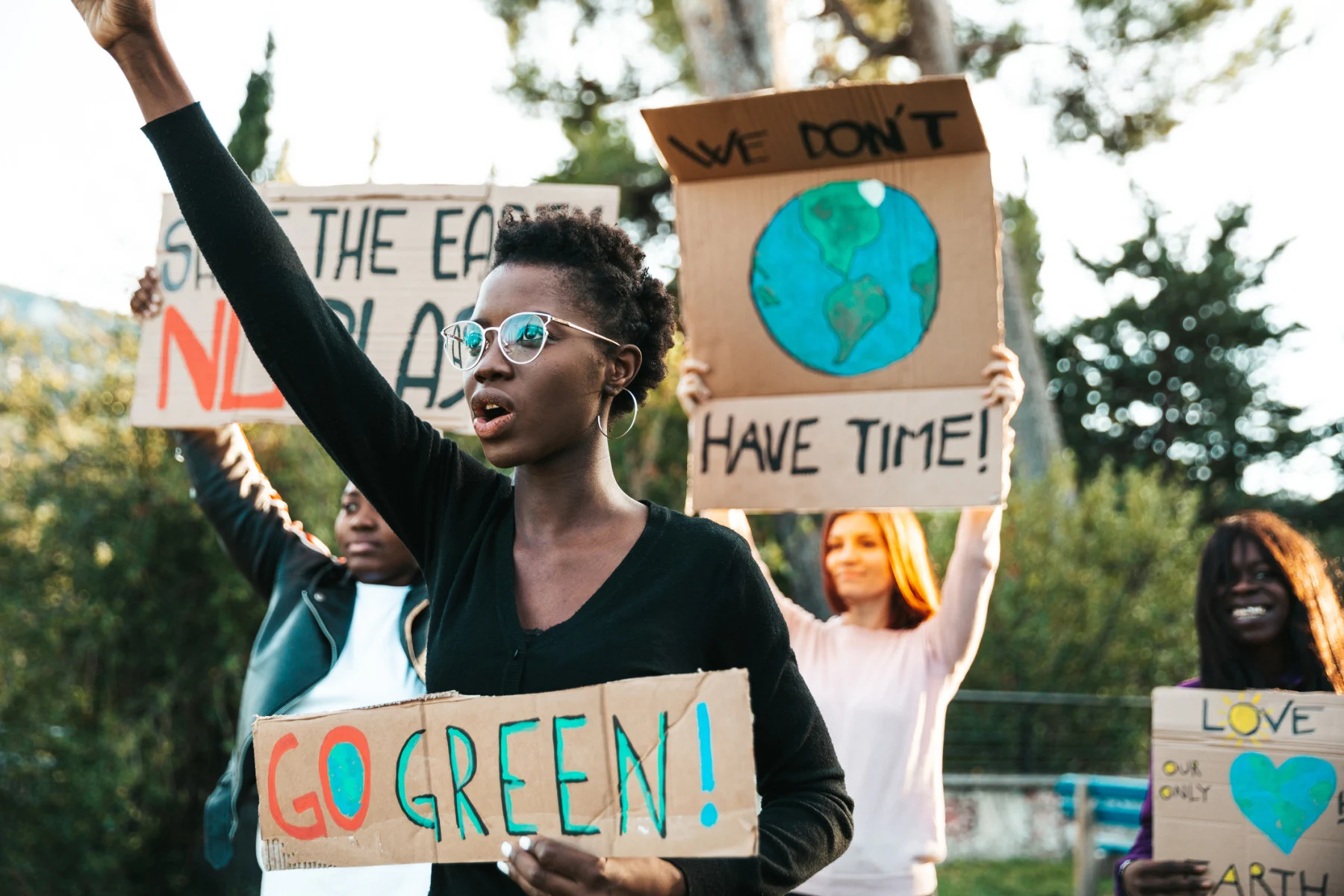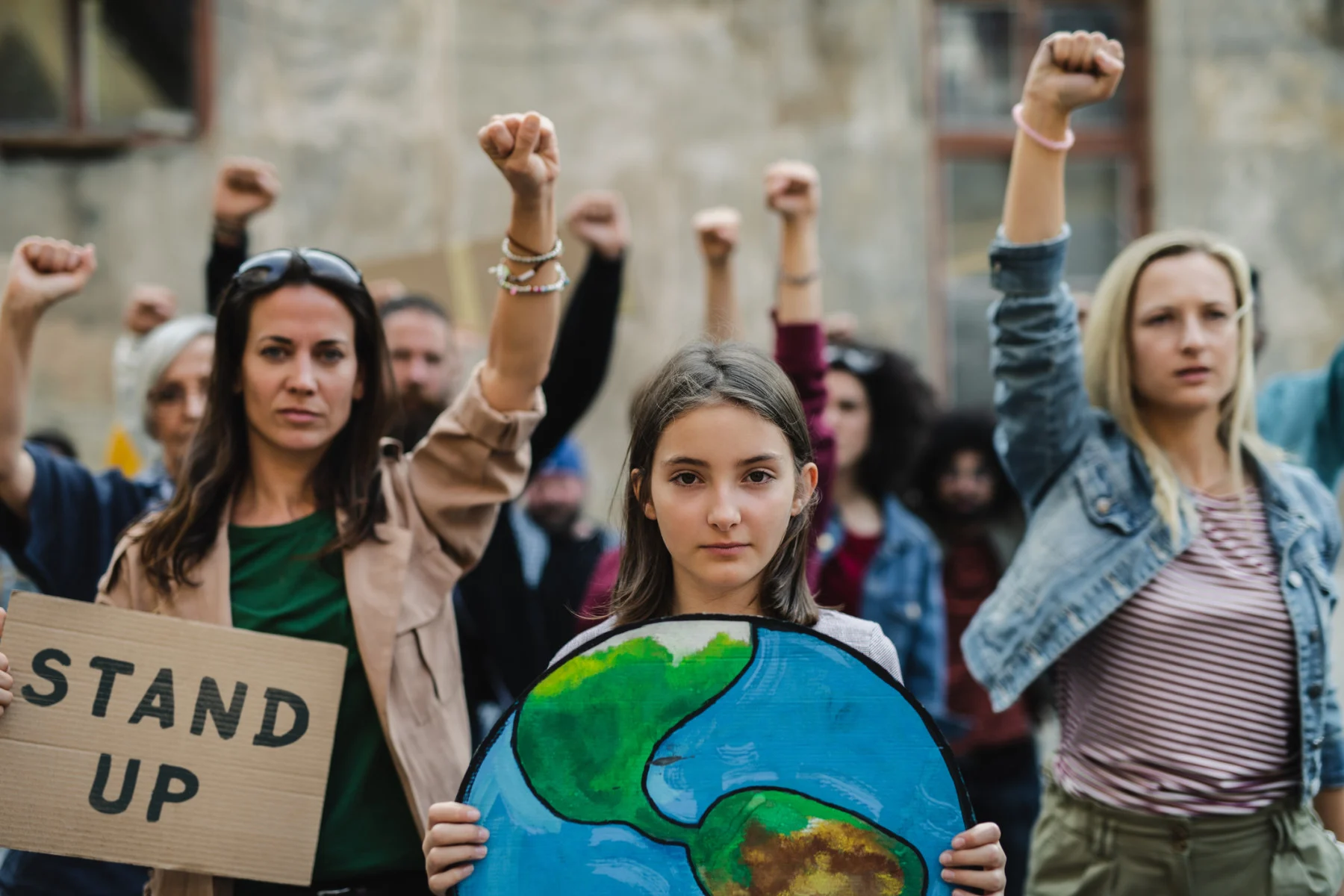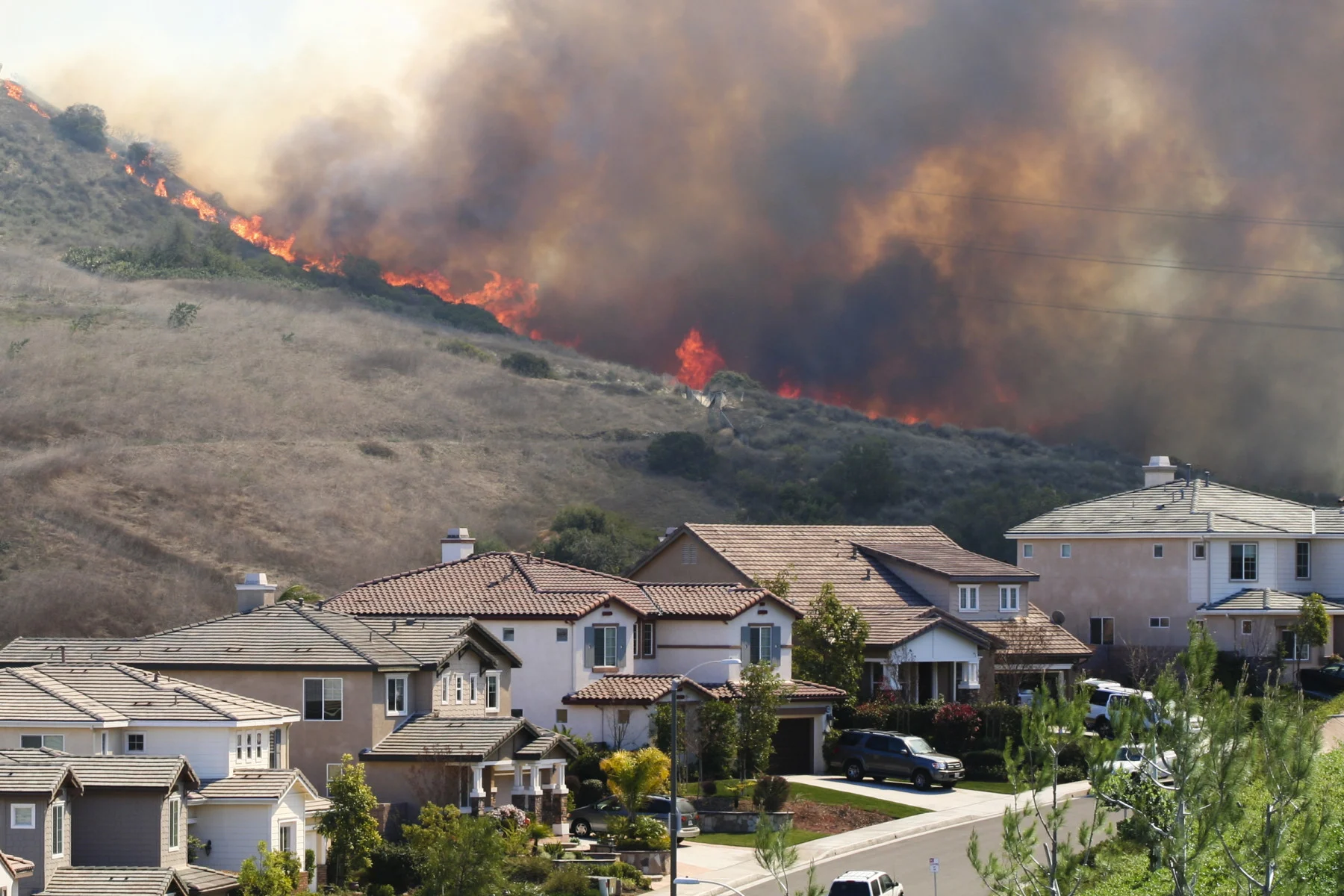
Widespread climate anxiety occurring in young people, research finds
Majority of young people between the ages of 16 and 25 years of age believe that governments are failing them and future generations, one study reports.
Youth are extremely worried about climate change and feel betrayed by their governments’ failure to cut carbon emissions. For those reasons, 75 per cent of the 10,000 young people surveyed across 10 countries believe the future they face is frightening.
“This study paints a horrific picture of widespread climate anxiety in our children and young people,” said Caroline Hickman, a psychotherapist and lead author of an international study to be published in the medical journal The Lancet.
This anxiety is an “entirely appropriate response to what's going on," Hickman said in a press conference. The survey of 16-25-year-olds revealed that “two-thirds of children believe governments are lying, failing, and betraying them and future generations.”

Young group of teenagers activists demonstrating against global warming. (LeoPatrizi/ E+/ Getty Images)
On September 16 the World Meteorological Organization released a climate science summary report that concluded: “Rising global temperatures are fuelling devastating extreme weather throughout the world, with spiralling impacts on economies and societies.”
One day later, September 17, the United Nations published an update on the commitments countries have made to reduce carbon emission that shows emissions in 2030 will likely have increased by 16 per cent compared to 2010. Emissions need to be cut by at least 50 per cent to have any hope of keeping the temperature rise around 1.5°C emissions.
“Governments are letting vested interests call the climate shots,” said Jennifer Morgan, Executive Director, Greenpeace International. “Passing the buck to future generations has got to stop,” Morgan said in a statement.
“Distrust of government and industry is a recurring theme amongst teens,” says Aliénor Rougeot, a youth activist who is the lead organizer of Toronto's Fridays for Future Strikes, a movement sparked by Sweden’s well-known climate activist Greta Thunberg. The Toronto group will participate in the Fridays for Future Global Climate Strike on September 24th that has a focus on getting countries in the Global North to drastically cut their emissions.

A group of climate activists protesting in Slovakia. (Halfpoint/ iStock/ Getty Images Plus)
Rougeot told The Weather Network that many youth are fearful and feel anxious and powerless while “some are angry and become activists like me.”
The anger and distrust comes from knowing the long history of inaction on climate by governments and business. “The problem was clear before we were even born, and yet governments did nothing,” she said.
Rougeot says the youth who are involved in climate and social justice will vote in the Federal Election if they are old enough. “However we’re not putting our whole hope in the election.”
RELATED: Sizing up each political party's climate change plan
Young people surveyed from Nigeria, India, Brazil, and the Philippines expressed more worry and more of them said their anxiety about the climate crisis affected their daily lives. Young people in Portugal (which has seen dramatic increases in wildfires since 2017) showed the highest level of worry amongst those from Australia, United States, United Kingdom, France and Finland.
Nearly half of the youth from the 10 countries said climate-related anxiety and distress is affecting their daily lives and ability to function normally.
“What’s making young people feel the worst …[is that] we are ignoring the climate crisis and not talking about it,” said Thunberg in a statement.
“At its root, our climate anxiety comes from this deep-set feeling of betrayal because of government inaction,” said Mitzi Tan, 23-years-old, from the Philippines.

A wildfire in Southern California burning near a neighbourhood. (f00sion/ E+/ Getty Images)
Sixteen year old Californian Katerina Gaines said: “Every year I see my home burned alive. I literally smell the climate crisis in the air.”
It was “shocking to hear how so many young people from around the world feel betrayed,” said Liz Marks, co-author of The Lancet study and Senior Lecturer in Psychology at the University of Bath.
“Now is the time to face the truth, listen to young people, and take urgent action against climate change,” Marks said in a statement.
The study concludes that governments must respond to “protect the mental health of children and young people by engaging in ethical, collective, policy-based action against climate change.”
The research comes after UNICEF released a report on the physical threat climate change poses to children. It found nearly one child in two lives in a country facing “extremely high risk”’ from the impacts of the climate crisis.
Thumbnail credit: Emmanuel Lavigne/ EyeEm/ Getty Images






